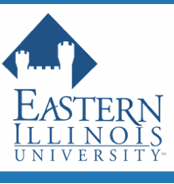Preferred Delivery
Virtual
Start Date
7-10-2022 2:00 PM
End Date
7-10-2022 3:50 PM
Document Type
Presentation
Abstract
Many adult students arrive at the doors of higher education institutions with an assortment of prior successes and failures in the educational systems. They have individual and family histories that can be both a strength and a source of trauma. Students report finding a home or place where they confront or challenge prior perceptions about their educational strengths and barriers. When students recognize their potential via successes in an adult-focused cohort learning, they frequently report experiencing a renewal or resurgence of personal power and self-efficacy.
Description
Many adult students arrive at the doors of higher education institution with an assortment of prior successes and failures in the educational systems. They have individual and family histories that can be both a strength and a source of trauma. Students report finding a home or place where they confront or challenge prior perceptions about their educational strengths and barriers. When students recognize their potential via successes in an adult focused cohort learning they frequently report experiencing a renewal or resurgence of personal power and self-efficacy. These new successes serve to surface issues and replace many of the messages about inadequate skills and intellect acting on them often unconsciously. Students engaging with each other and faculty enter the circle of transformational learning that includes healing dimensions. The faculty members are also influenced by and through being part of the journey where the students seek to improve and change their lives and their life contexts. Faculty members derive inspiration and a sense of contentment serving as mentors and teachers at the multiple levels of learning where students become more empowered to influence their personal, family and community lives.
The presenters will share stories and examples from their teaching practices and mentoring where the circle of healing is entered.
Creative Commons License

This work is licensed under a Creative Commons Attribution-Noncommercial-No Derivative Works 4.0 License.
Included in
Adult and Continuing Education Commons, Higher Education Commons, Social and Behavioral Sciences Commons
The Power of Healing from Educational Trauma: Transformative Experiences in an Adult Higher Education Degree Completion Cohort Program through Circles of Engagement, Participation, Self-Efficacy, and Nurturing
Many adult students arrive at the doors of higher education institutions with an assortment of prior successes and failures in the educational systems. They have individual and family histories that can be both a strength and a source of trauma. Students report finding a home or place where they confront or challenge prior perceptions about their educational strengths and barriers. When students recognize their potential via successes in an adult-focused cohort learning, they frequently report experiencing a renewal or resurgence of personal power and self-efficacy.





Speaker Information
Wytress Richardson, Ed.D chairs the Applied Behavioral Science program at National Louis University (NLU) where she leads a team of faculty in empowering undergraduate students and leads diversity and inclusion at NLU. Her 18 years of excellence in higher education is evidenced by numerous teaching and service awards. Her work is informed by her two decades’ experience in the Human Service field where she served as counselor, advocate, and supervisor. Dr. Richardson’s interdisciplinary education in Organizational Leadership, Human Services Administration, and Applied Behavioral Science equips her to create resilient settings where both individuals and organizations can thrive.
Craig Mealman, Ed.D creates and fosters a brave space where students can transform their lives and those in their circles through dynamic learning processes and collaborative learning practices in cohort-based higher education focusing on studying human behavior in various social contexts.
Students frequently share that they experience various levels of healing during their educational journeys. Dr. Mealman believes there is a calling to create the space for those students employing mindfulness and heart-centered teaching as one vital dimension of those educational processes.
Dr. Mealman’s lifelong interests are in Adult Learning; Transformational Learning; Cohort-based Learning in Higher Education; Collaborative Learning; Spiritual Growth and Development; Higher Education Degree Program design, planning, implementation, and evaluation; Post Traumatic Stress Syndrome; Mindfulness, and Heart-Centered Teaching Processes.